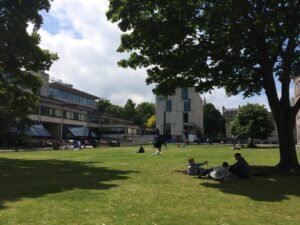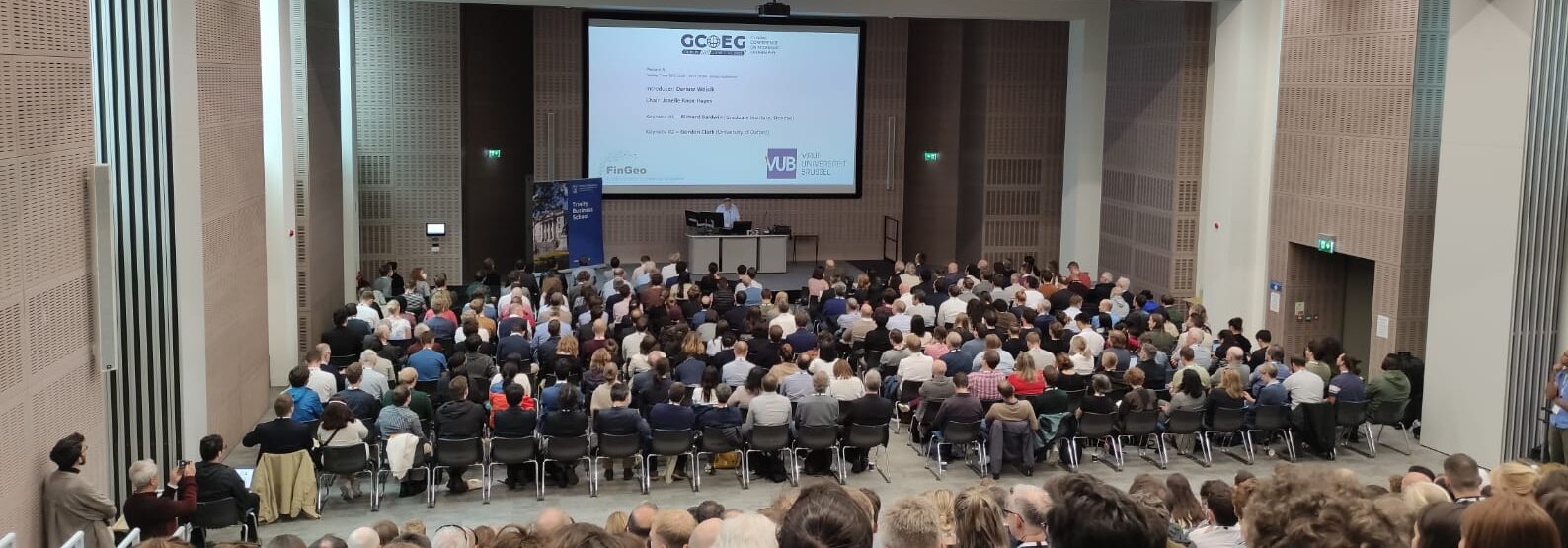It is conference season again, and some early-stage and senior researchers from our POLISS network finally met again this summer in Dublin. The Global Conference on Economic Geography (GCEG) is one of our discipline’s most important conferences, with almost a thousand attendees. For many, it has been a long-awaited event after almost two years of – exhausting – online conferences.
I remember exactly those very hot summer days of July 2018 in Cologne, Germany, where the last GCEG was held. As a freshly graduated economic geographer, I was excited about this event and to finally met the whole discipline. Who can forget the dried-out park areas, autumn-like yellow leaves on trees, crowded conference rooms and the many interesting sessions and debates? I was happy to hear the announcement at the end of the conference that the next GCEG would be in Dublin, where I spent my Erasmus.
And then, four years later, this time as a PhD candidate within POLISS, I should return. And while Dublin received me with its typical Irish summer breeze, not only the weather was slightly different from these hot days in 2018.

Looking back, it feels like a different world today where we have experienced serious ruptures since then. This week’s issue of The Economist is titled ‘reinventing globalisation’, and for a discipline which studies the organisation of economic activity in space and place, the last year’s events have provided lots of new input to study. There has been Trump’s tariff war on China, the global pandemic, Russia’s invasion of Ukraine and, of course, the ongoing issue of climate change. All ruptures that seriously affect the spatial organisation of economic activities and thus territorial development, this year’s conference theme.
Our POLISS network had a lot to contribute to that. The research we presented in Dublin covers societal challenges such as inequality or the impact of digitalisation and technological change.
For instance, Dongmiao Zhang and Eduardo Hernández Rodríguez presented exciting research on the role of artificial intelligence and global value chains on jobs and tasks. How do these developments lead to regional economic diversification? Or Carolin Nast, who is questioning the role of public support for firm-level technological innovations. Can public support increase their technological complexity? Benjamin Cornejo Costas goes back in history by looking more into exciting historical patent data of the US in the 1920s. What has been the role of migrated inventors in breakthrough innovations? Martina Pardy is looking at the impact of multinational R&D activities. Are they spurring inequalities by concentrating their innovation activities in specific places? Dima‘s work on R&D networks tries to untangle the driving forces behind new tie formations. In the long term, this type of research can help policymakers identify key areas of intervention in regional policy-induced R&D networks. I have highlighted the importance of science and technology parks, which not only enhance local collective learning but also help forge external linkages to support green regional transformation. Geographically our research covers the macro-level such as the United States or Europe, and the meso-level, such as the Valencia region or Lower Austria.
It has been the first bigger conference for all of us and the initiation of a summer of conferences. The next stop will be the Geography of Innovation (GeoInno) Conference in Milan, Italy, only to end the summer with the ERSA Congress in Pecs, Hungary. This time the whole POLISS network will be represented.
We are looking forward to it!


